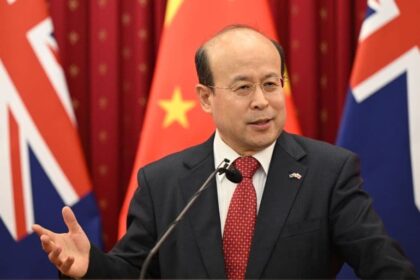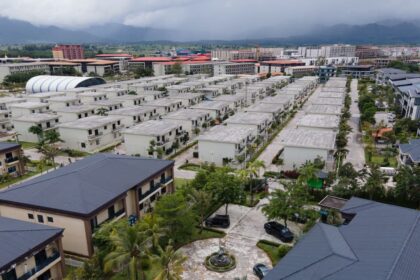Thailand’s Festival Revolution: From Local Gatherings to Global Mega-Events
Thailand is rapidly emerging as Asia’s premier destination for music festivals, transforming its tourism landscape and cultural identity. Once known primarily for its beaches, temples, and cuisine, the country is now making headlines for hosting some of the world’s most anticipated live music events. This shift is not just about entertainment—it’s a strategic move to drive tourism, economic growth, and global recognition.
- Thailand’s Festival Revolution: From Local Gatherings to Global Mega-Events
- Tomorrowland’s Arrival: A Game-Changer for Thailand and Asia
- The Broader Festival Landscape: Diversity and Competition
- Music Tourism: A Global Phenomenon with Local Impact
- Challenges and Risks: Sustainability, Saturation, and Local Concerns
- What’s Next for Thailand’s Music Festival Scene?
- In Summary
In recent years, Thailand has witnessed a surge in large-scale music festivals and international concerts. The arrival of Tomorrowland, the world’s largest electronic dance music (EDM) festival, marks a watershed moment. Set to debut in Chonburi in 2026 under a five-year deal, Tomorrowland is expected to draw up to a million visitors by 2030, cementing Thailand’s status as a global music hub. But this is just one piece of a much larger story.
Why Are Mega-Festivals Flocking to Thailand?
As established markets in Europe and North America face rising costs, regulatory hurdles, and market fatigue, Thailand offers a compelling alternative. The country’s vibrant culture, strategic location, and government support have made it a magnet for both international promoters and music fans. Recent events like British DJ Fred Again’s electrifying Bangkok show have attracted thousands, including “gig trippers” who travel across Asia for live music experiences.
Thailand’s appeal is multifaceted:
- Accessible Location: Proximity to major Asian cities and international airports makes travel easy for regional and global visitors.
- Vibrant Culture: A rich tapestry of local traditions, cuisine, and hospitality enhances the festival experience.
- Supportive Policies: The government’s “soft power” strategy includes significant investment in live events to boost tourism and national branding.
- Strong Fan Base: A youthful, music-loving population ensures enthusiastic local attendance.
These factors have positioned Thailand as a natural home for mega-festivals seeking new audiences and fresh energy.
Tomorrowland’s Arrival: A Game-Changer for Thailand and Asia
Tomorrowland’s decision to launch its first full-scale Asian edition in Thailand is a testament to the country’s growing influence. The festival, renowned for its immersive stage designs and global artist lineups, will be held at Wisdom Valley in Chonburi province. The Thai government has allocated over 2 billion baht (about $62 million) to support the event, with most funding coming from private investors through a public-private partnership model.
According to Sorawong Thienthong, Thailand’s Minister of Tourism and Sports, the festival is expected to generate more than 12 billion baht in economic activity over five years. The event will be managed by VR One World (Thailand), a joint venture with Belgium-based Tomorrowland International. The government projects 21 billion baht in returns, banking on the festival’s ability to attract high-spending tourists and elevate Thailand’s global profile.
Thapanee Kiatphaibool, Governor of the Tourism Authority of Thailand, explained, “This is not just about music. Tomorrowland will blend Thai culture, local music, and regional flair, showcasing our country to the world and acting as a catalyst for tourism.”
The festival’s immersive format—featuring themed villages, VIP packages, and multiple stages—will integrate local elements, giving international visitors a taste of Thai hospitality and creativity.
Economic Impact: More Than Just Ticket Sales
Hosting Tomorrowland is a strategic move to revitalize Thailand’s tourism sector, which has yet to fully recover from the pandemic. The government’s focus is on attracting higher-spending visitors who stay longer and spend more, rather than simply chasing arrival numbers. This aligns with global trends in music tourism, where experiential travel is increasingly valued over traditional sightseeing.
Music festivals have a proven track record of stimulating local economies. In the UK, for example, live music events contributed over $8 billion in 2022, creating thousands of jobs. In South Korea, BTS’s concerts accounted for 0.3% of the country’s GDP. Thailand hopes to replicate this success, leveraging festivals to boost hospitality, transportation, retail, and related sectors.
However, experts caution that the long-term benefits depend on integrating these events into broader economic strategies. There are risks of novelty wearing off, displacement of other tourism activities, and challenges in sustaining post-event momentum. The key will be ensuring that the festival boom translates into lasting gains for local communities and the national economy.
The Broader Festival Landscape: Diversity and Competition
Tomorrowland is just the tip of the iceberg. Thailand’s festival calendar is packed with both international imports and homegrown events, reflecting the country’s diverse musical tastes and creative energy.
International Blockbusters and Local Legends
Major festivals scheduled in Thailand include:
- Super Sonic Bangkok
- Rolling Loud (the world’s largest hip-hop festival)
- 808 Festival
- Creamfields
- Electric Daisy Carnival
These events are complemented by concerts from global superstars such as Mariah Carey, BLACKPINK, and Guns N’ Roses, drawing fans from across Asia and beyond.
On the local front, the Big Mountain Music Festival (BMMF) in Khao Yai stands out as a pioneering force. Now in its 15th year, BMMF features over 100 acts across 14 stages, spanning genres from pop and folk to country and Morlam (a traditional Thai music style). The festival is known for its inclusive atmosphere, creative stage setups, and unique experiences like drone shows and themed camping zones. It has played a crucial role in nurturing local talent and building a loyal fan base.
Other notable events include Wonderfruit, which blends music, art, and sustainability, and Thailand Winter Festivals, a government-backed series celebrating the “7 Wonders of Thailand” through music, food, sports, and cultural showcases.
Government Policy: Soft Power and Tourism Strategy
The Thai government has made festivals a cornerstone of its tourism and soft power strategy. The Ministry of Tourism and Sports, in collaboration with the Tourism Authority of Thailand (TAT) and private partners, is actively promoting world-class events to stimulate both domestic and international tourism. Initiatives like the Thailand Winter Festivals aim to extend visitor stays, increase spending, and distribute income to local communities.
Prime Minister Paetongtarn Shinawatra emphasized, “We are committed to making tourism a key driver of the national economy, fostering employment, and expanding Thai tourism into the global market.”
This coordinated approach seeks to elevate traditional Thai festivals to international standards while leveraging the country’s unique cultural assets. The IGNITE’s THAILAND TOURISM policy specifically targets music, sports, and cultural events as engines of sustainable economic growth and national branding.
Music Tourism: A Global Phenomenon with Local Impact
Thailand’s festival boom is part of a larger global trend. The music tourism market is projected to reach $267.8 billion by 2030, growing at nearly 19% annually. Festivals and concerts are the main drivers, with millennials and Gen Z travelers leading the charge. These younger audiences value experiences over possessions, often traveling internationally for live events and exploring new destinations in the process.
According to industry research, 42% of music tourists travel abroad for events, and 84% use concerts as an opportunity to discover new cities or countries. Online travel agencies and direct booking platforms have made it easier than ever to plan festival trips, while social media amplifies the appeal and reach of these events.
Thailand’s rise as a festival hub is also reflected in tourism statistics. Bangkok was named Asia’s most visited city for 2025 by Agoda, with other Thai destinations like Phuket, Pattaya, Chiang Mai, and Hat Yai ranking high for repeat visits. The country’s reputation for safety, service excellence, and unique charm continues to attract diverse travelers.
Experiential Travel and Cultural Exchange
Music tourism is more than just entertainment—it’s about cultural exchange and authentic experiences. Festivals provide a platform for showcasing local traditions, cuisine, and arts to a global audience. Events like Thai Fest by the Beach in Santa Monica, California, highlight Thailand’s efforts to export its culture and promote tourism abroad. These initiatives foster international goodwill and inspire travelers to visit Thailand for the real thing.
For travel providers and event organizers, the rise of music tourism offers opportunities to create tailored packages, integrate cross-selling features, and innovate with new experiences. The hospitality industry is increasingly partnering with festivals to offer exclusive accommodations and perks, further enhancing the value proposition for music tourists.
Challenges and Risks: Sustainability, Saturation, and Local Concerns
Despite the optimism, Thailand’s festival boom is not without challenges. As the number of events increases, concerns about market saturation, rising costs, and sustainability have come to the fore. Local promoters worry about the viability of smaller festivals in the face of competition from international players with deeper pockets.
One local festival founder warned, “There’s a risk of a bubble if the number of events outpaces actual demand. We need more support for grassroots festivals to ensure a healthy ecosystem.”
Environmental sustainability is another pressing issue. Large-scale festivals can strain local resources and generate significant waste. Events like Wonderfruit have responded by emphasizing eco-friendly practices, but broader industry adoption is needed to minimize negative impacts.
The government and private sector must also address the risk of “event fatigue,” where the novelty of mega-festivals wears off and visitor numbers decline. Integrating festivals into long-term tourism and economic strategies will be crucial for maintaining momentum and delivering lasting benefits.
Competition in the Region
Thailand’s main regional competitors are Singapore and Vietnam, both of which are investing in live events and cultural tourism. However, Thailand’s combination of infrastructure, policy support, and cultural vibrancy gives it a distinct edge. The challenge will be to maintain this advantage as other countries ramp up their efforts.
What’s Next for Thailand’s Music Festival Scene?
Thailand’s ambition to become Asia’s live music capital is clear. The country is betting big on festivals as a driver of tourism, economic growth, and international prestige. The success of Tomorrowland and other mega-events will be closely watched, both for their immediate impact and their ability to create lasting change.
For music fans, the future looks bright. Thailand offers a unique blend of world-class events, local creativity, and unforgettable experiences. Whether you’re a die-hard EDM fan, a lover of traditional Thai music, or simply seeking adventure, the kingdom’s festival scene promises something for everyone.
In Summary
- Thailand is rapidly emerging as Asia’s top destination for music festivals, attracting both international mega-events and homegrown celebrations.
- The landmark arrival of Tomorrowland in 2026 signals a new era, with the government investing over 2 billion baht to support the festival and boost tourism.
- Music tourism is a global growth engine, with millennials and Gen Z driving demand for live experiences and cultural exchange.
- Thailand’s appeal lies in its accessible location, vibrant culture, supportive policies, and strong local fan base.
- Challenges include market saturation, sustainability, and competition, with calls for more support for grassroots festivals and eco-friendly practices.
- The future of Thailand’s festival scene depends on integrating events into broader economic strategies and maintaining its unique cultural identity.












